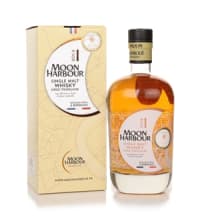With The Chancellor’s (Jeremy Hunt) Spring Budget announced a cry of outrage went up from whisky fans all over the world as it directly opposes government’s pledge to “ensure the tax system is supporting Scottish whisky”
The Chancellor, Jeremy Hunt Announced in the Spring Budget that there will be an increase in the tariff on Scotch Whisky by 10.1%, one of the biggest tax increases in recent years, severely hurting spirits' ability to compete. Support was offered on draft products but this new tariff will apply across all four alcohol categories.
As the average cost of a bottle of Scotch Whisky is £15.22, the duty rate on spirits will increase to £31.64 per litre of pure alcohol, implying that £11.40 will be taken in taxation from duty and VAT. The tax burden on a bottle of Scotch Whisky with an average price has increased from 70% to 75%.
“This is an historic blow to the Scotch Whisky industry. The largest tax increase for decades means that 75% of the average priced bottle of Scotch Whisky will be collected in tax, reducing already tight margins for an industry which employs tens of thousands of people and invests hundreds of millions annually across the UK. We have been clear with the UK Government that increasing duty would be the wrong decision at the wrong time, so it is deeply disappointing that one of Scotland’s largest and longest-standing industries has been treated in this way.” ~ Mark Kent, Chief Executive, SWA
Both directly and indirectly, the Scotch whisky sector makes a sizable contribution to the Scottish economy. The industry has the following effects on the Scottish economy:
- Jobs: The industry directly employs about 10,000 people in Scotland. It is also thought to support a further 30,000 jobs throughout the industry's supply chain, which includes farming, transportation, and the hotel sector.
- Over 90% of all Scotch whiskey produced is sold abroad, making the business a significant exporter. Scotch whisky exports in 2020 were worth £4.7 billion, ranking it among Scotland's top exports.
- Tourism: With several distilleries giving tours and tastings, the Scotch whiskey sector is a major lure for travellers. Almost 2 million tourists are thought to visit distilleries in Scotland each year, adding to the nation's overall tourism business.
- Investment: The industry makes significant investments in Scotland, including capital expenditures for new distilleries and infrastructure as well as R&D.
Ultimately, the Scottish economy depends heavily on the Scotch whiskey sector, which also contributes significantly to jobs, exports, tourism, and investment.
It is a real shame this tariff was announced as in the past when given stability and certainty through duty freezes, Scotch Whisky has repeatedly performed well for the UK economy, enabling the sector to reinvest in job creation and growth throughout the nation. The Chancellor has made the decision to disregard the facts and put further pressure on struggling companies, many of whom are in the hotel industry. Now that the Chancellor has decided to raise the tax rate on Scotch Whisky, Scotch lovers and fans are urged to call on all MPs to clearly show their support for the Scotch Whisky sector by opposing this unjustified tax rise in the Finance Bill.








